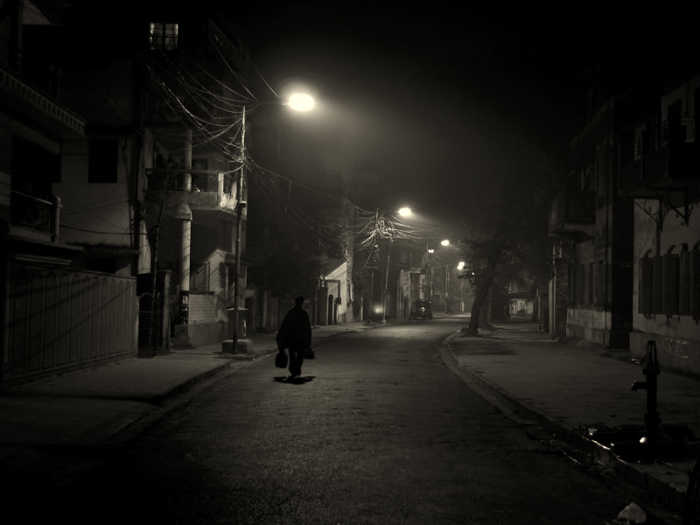FWP:
SETS == MAGAR; PHIR
The wonderful pivot of this seemingly simple little verse is magar , which means both 'perhaps' and 'but' (and ably supporting it is phir , meaning both 'then' and 'again'). If we take magar to mean 'perhaps,' then the second line supplies a tentative explanation for the first line: perhaps the reason thought goes to the beloved's street at that time-- 'then' [phir]-- is that it remembered the heart that had been presumably lost there. This is the version the commentators prefer, and it's the most obvious one.
However, if we take magar to mean 'but', then the second line supplies a
cautionary deterrent: thought constantly sets off for the beloved's street, but then
it remembers the lost heart. Does it begin the journey again and 'again' [phir],
and lose heart (so to speak) and stop again and again? Is it confused about
where the heart may be, since it was lost so long ago that it only occasionally
comes to mind? Now that the heart is already lost, does it wonder what is there to offer?
Does it ask itself what's the point of going there? That thought may well give a lover (and his 'thought') pause.

Nazm:
That is, only in your street is there the likelihood of the heart's becoming lost, so that thought would seek for it there. (35)
== Nazm page 35